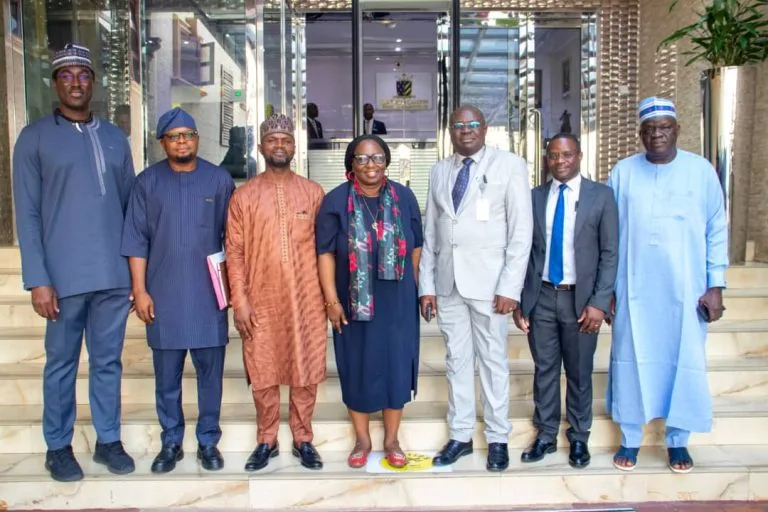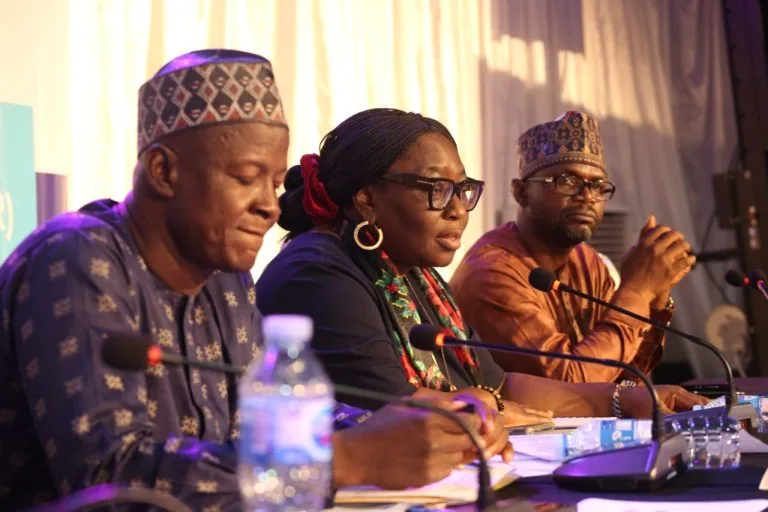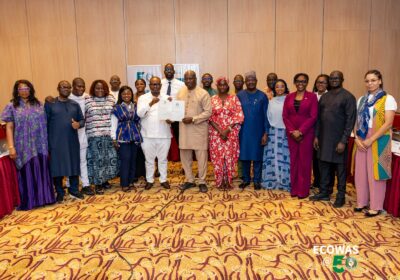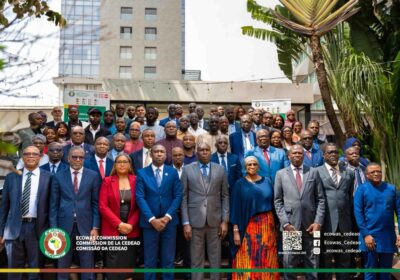FG, IFAD Partner to Launch Unified Digital Farmers Registryto Enhance service delivery to Nigerian farmers.
By Raymond Enoch
In a bold step to revolutionise agricultural planning and service delivery in Nigeria, the Federal Government, in collaboration with the International Fund for Agricultural Development (IFAD) and Heifer International, has commenced the harmonisation of all existing farmers’ databases into a comprehensive National Digital Farmers’ Registry (NDFR).
The initiative, officially unveiled during a policy dialogue in Abuja, is designed to unify disparate farmer records across the country into a centralised, verifiable, and technologically driven platform. The NDFR will be domiciled in the Federal Ministry of Agriculture and Food Security and is expected to serve as the bedrock for data-driven policymaking, investment planning, and effective resource allocation in the sector.
Speaking at the launch, the Permanent Secretary of the Ministry, Dr. Marcus Ogunbiyi, described the registry as a strategic solution to Nigeria’s long-standing data management challenges in the agriculture sector. According to him, the fragmented and often inaccurate data on farmers and farmlands has hindered the implementation of several government interventions over the years.
“We cannot continue to plan in the dark,” Dr. Ogunbiyi said. “This harmonised digital platform will provide accurate, traceable, and accessible data on our farmers and their farming activities. It will serve as a foundation for equitable service delivery and accountability.”

He emphasised that the registry will also help eliminate the menace of “ghost farmers” that have historically undermined the efficiency of government programmes.
The NDFR will leverage advanced technologies to register farmers using biometric and geospatial data. Each farmer will be issued a unique identification card linked to their National Identity Number (NIN). The registry will capture detailed data such as:
Farm size and GPS-coordinated location
Crop and livestock types
Soil quality and topography
Farming practices and production scale
Access to inputs, finance, and extension services
The registry will also be integrated with other national systems such as the Bank Verification Number (BVN), thereby improving farmers’ access to financial products, insurance, and subsidies.
IFAD Country Director in Nigeria, Dede Ekoue, lauded the federal government’s commitment to building an inclusive and sustainable agricultural data system. She noted that the NDFR initiative aligns with IFAD’s global vision for inclusive rural transformation.
“This registry is a game changer,” Ekoue said. “It provides a foundation for long-term investment, ensures that no farmer is left behind, and strengthens transparency and accountability in agricultural support systems.”
Heifer International’s Country Director, Dr. Lekan Tobe, echoed the sentiment, highlighting the need for multi-stakeholder collaboration. He stressed the importance of involving the private sector, civil society, telecommunications companies, and farmers’ cooperatives in the ongoing development and implementation of the registry.

The initiative is part of a broader digital transformation agenda within the agriculture ministry. The NDFR is set to work in tandem with the National Electronic Extension Platform (NEEP) and the upcoming National Agricultural Data Management and Information System (NADMIS), creating a synergised digital ecosystem for the sector.
According to officials, these platforms will streamline extension services, provide real-time updates for policymakers, and support the federal government’s drive toward food security and self-sufficiency.
While the prospects of the digital registry are promising, stakeholders acknowledged potential obstacles such as limited rural digital infrastructure, poor internet connectivity, and farmers’ digital illiteracy. As a response, the Ministry plans to roll out robust capacity-building programs and rural sensitisation campaigns.
To ensure inclusive participation, the project will adopt a phased implementation strategy starting with pilot states such as Nasarawa and Oyo, before scaling nationally.
Additionally, a National Multi-Stakeholder Platform is being established to monitor progress, ensure transparency, and recommend policy adjustments where necessary.
With agriculture employing over 70% of Nigeria’s rural population, the successful deployment of the National Digital Farmers’ Registry stands to be a transformative milestone. By consolidating data and digitalising the identity and activities of Nigerian farmers, the government and its partners aim to unlock new levels of efficiency, inclusiveness, and accountability.
Experts are of the opinion that the initiative has the potential to position Nigeria as a leader in digital agriculture across the African continent, provided that its rollout is inclusive, participatory, and effectively managed.









